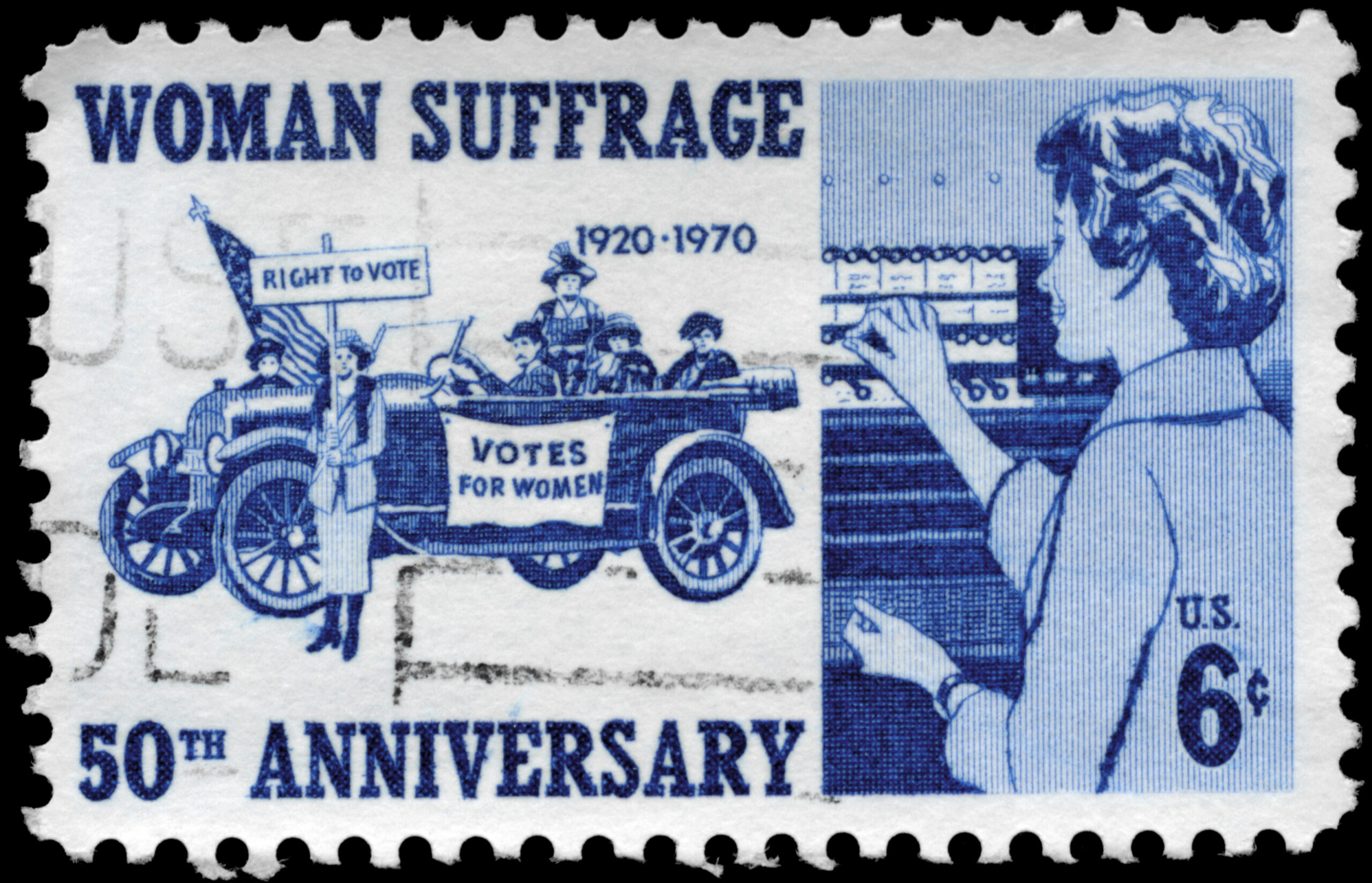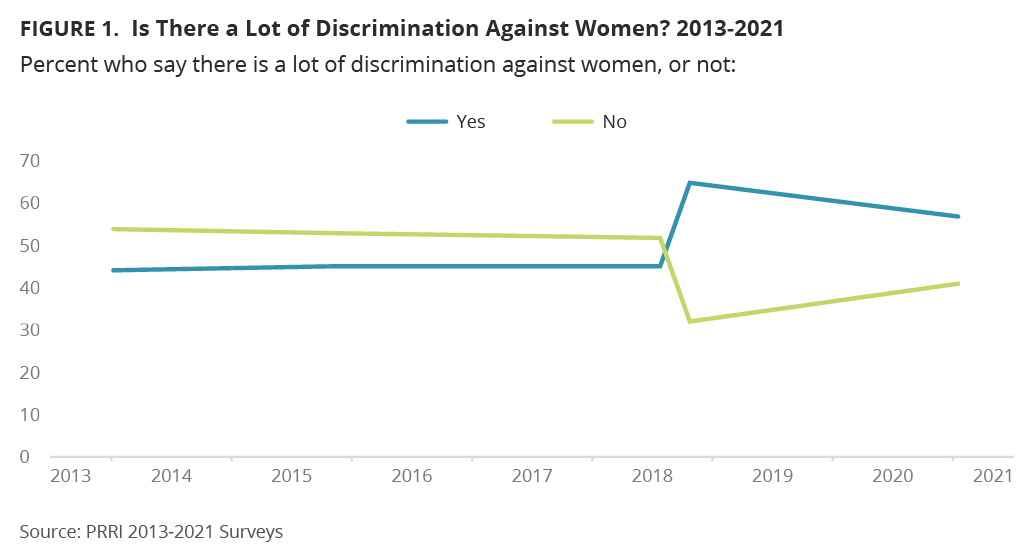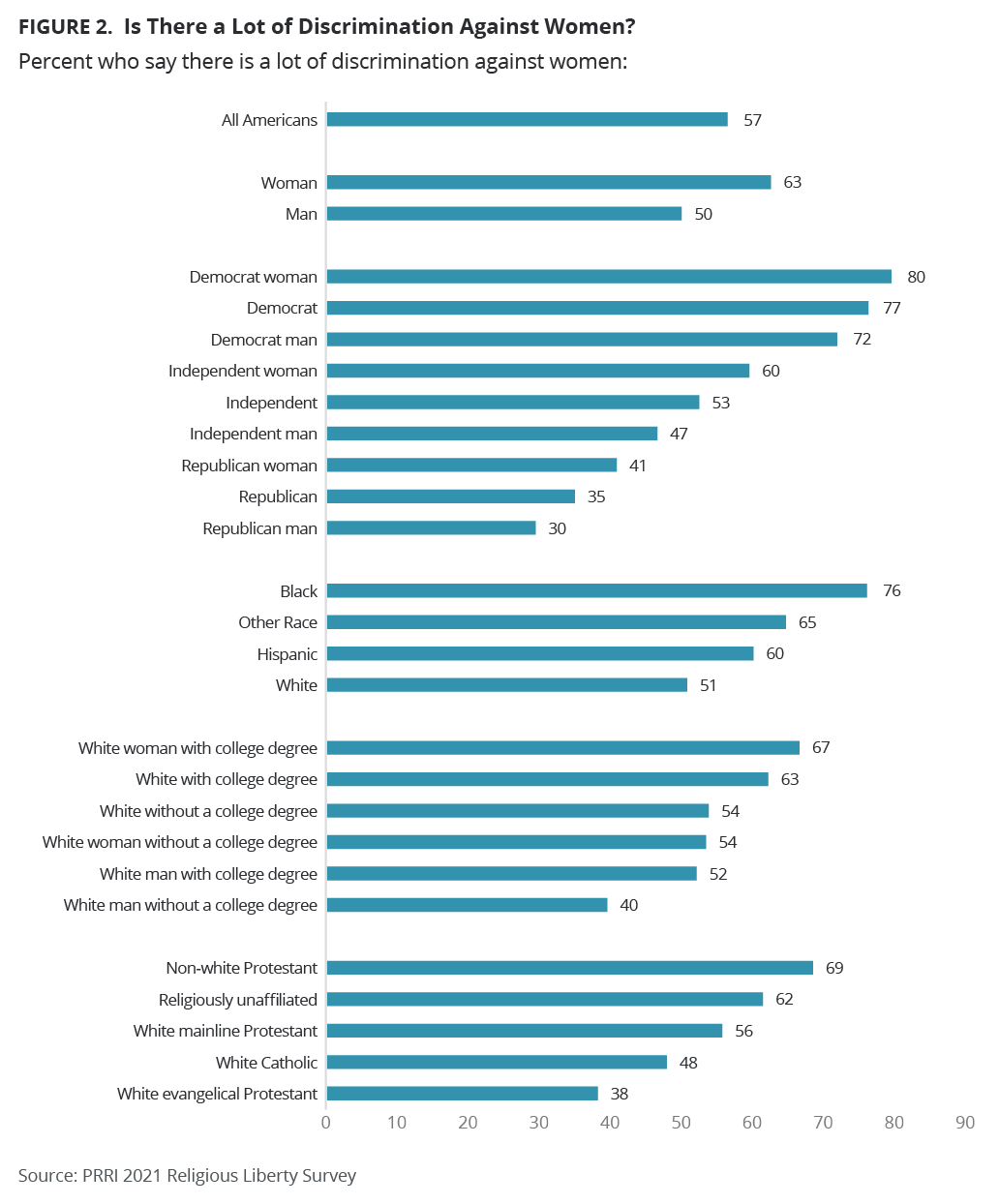Most Americans Think Women Face a Lot of Discrimination

On August 26 of each year, Americans celebrate Women’s Equality Day, established in 1973 to commemorate the date the 19th Amendment passed, guaranteeing American women the right to vote. Women’s Equality Day remains a symbol of women’s continued fight for equal rights. Over the years, PRRI has asked: Just your impression, in the United States today, is there a lot of discrimination against women or not?
In 2013, a slim majority of Americans (54%) said that there is not a lot of discrimination against women, compared to 44% of Americans who said yes, there is a lot. These percentages stayed consistent in 2015 (53% vs. 45%) and up to July 2018 (52% vs. 45%). In October 2018, however, in the midst of sexual assault allegations taking center stage in U.S. Supreme Court nominee Brett Kavanaugh’s confirmation hearings, this general sentiment changed dramatically, with about two-thirds of the American public (65%) saying that there is a lot of discrimination against women, compared to one-third (32%) who said there is not a lot of discrimination. In 2021, the percentage of Americans who think there is a lot of discrimination against women declined to 57% (compared to 41% who said no), but still represents a majority of the American public.

In 2021, Democrats (77%) were more than twice as likely as Republicans (35%) to say that there is a lot of discrimination against women, while independents fell in between (53%).
Not surprisingly, the majority of American women say that there is a lot of discrimination against women (63%), compared to half of American men (50%). Democrat women (80%) are notably more likely to say so than Republican women (41%), while Democrat men (72%) are more likely than Republican men (30%) to say that there is a lot of discrimination against women.
Solid majorities of Protestants of color (69%) and religiously unaffiliated Americans (62%) say that there is a lot of discrimination against women, while white Christian groups are less likely to do so. About half of white Catholics (48%) and a slim majority of white mainline Protestants (56%) say that there is a lot of discrimination against women. White evangelical Protestants are the only religious group where both the vast majority thinks that there is not a lot of discrimination against women (60%) and a minority thinks there is a lot (38%).
White Americans (51%) are the least likely among racial and ethnic groups to say that there is a lot of discrimination against women, compared to 60% of Hispanic Americans, 65% of Americans of another race, and 76% of Black Americans.[1] Whites with a college degree are more likely than whites without a college degree to say that there is a lot of discrimination against women (59% vs. 47%). And, education divides white women — those with a college degree are more likely than those without a college degree to say that there is a lot of discrimination against women (67% vs. 54%). White men are also divided by education, but fewer overall say women face a lot of discrimination (52% with a college degree and 40% without).
Majorities of Americans across age groups think that there is a lot of discrimination against women, but younger Americans ages 18-29 (59%) and ages 30-49 (60%) are more likely to do so than older Americans ages 50-64 (54%) and 65 and over (55%).

[1] These results need to be interpreted with caution as the number of cases for Black Americans and Americans of another race is less than 100 (83 and 87, respectively).

